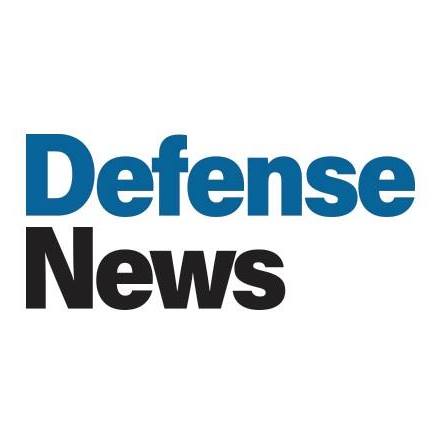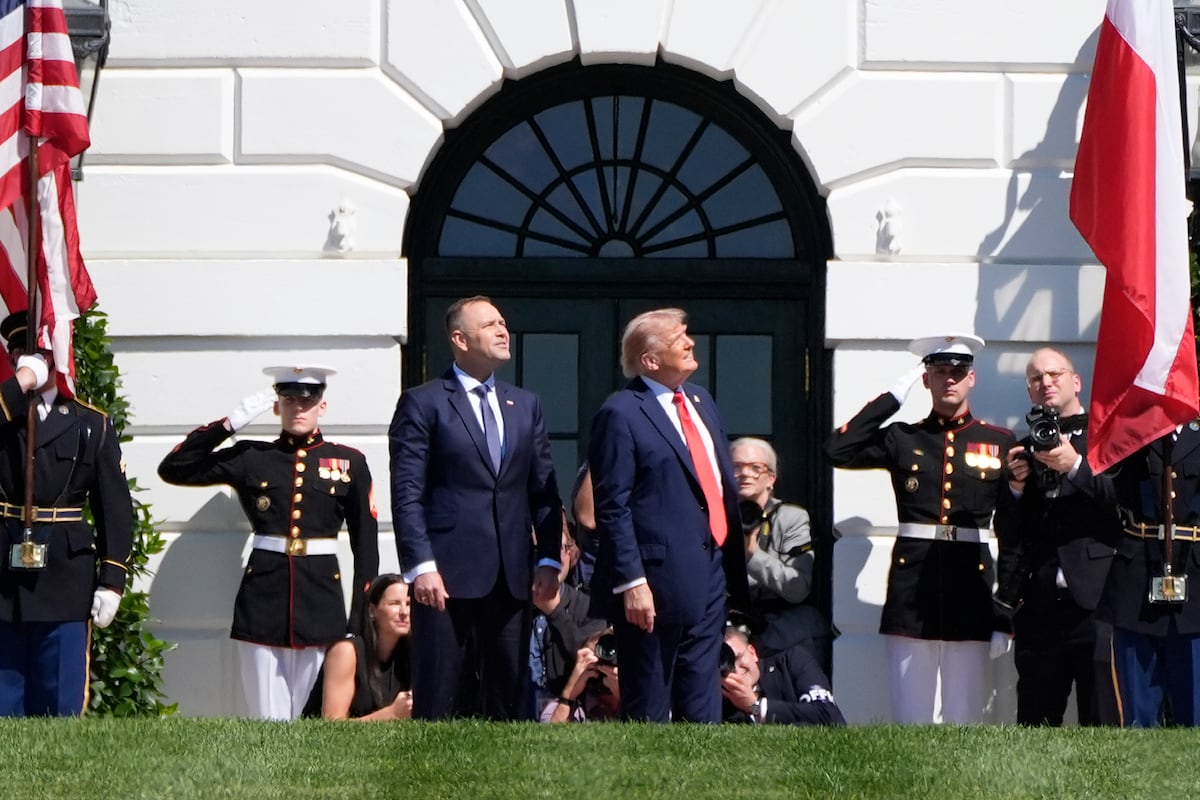



WASHINGTON (AP) — President Donald Trump affirmed that the United States will keep a robust military presence in Poland as he had a warm meeting Wednesday with the country’s new president, Karol Nawrocki.
Trump had taken the unusual step of endorsing Nawrocki in the Polish elections earlier this year, and as the leaders sat side by side in the White House, Trump said the U.S.-Polish relationship has always been strong but “now it’s better than ever.”
When asked by a reporter whether the U.S. planned to continue placing troops in Poland, Trump said the U.S. would and “we’ll put more there if they want.”
“We’ll be staying in Poland. We’re very much aligned with Poland,” Trump said.
The visit to Washington is Nawrocki’s first overseas trip since taking office last month. The former amateur boxer and historian, who was backed by the conservative Law and Justice party, was hoping to deepen his relationship with Trump at a fraught moment for Warsaw.
Nawrocki thanked Trump for his support and, in a nod to the bonds between their countries, gave a shout out to the millions of Polish Americans in the U.S.
“Those relations for me, for Poland, for Poles, are very important,” Nawrocki said.
He added that those bonds are based on shared values of independence and democracy.
In a news conference after his meeting, Nawrocki said he and Trump discussed expanding the U.S. military presence in Poland.
“There were specific discussions regarding this project,” he said.
He also said he considered it “a major success” that Trump provided a guarantee of Poland’s security.
At the White House, Trump said he was proud to have endorsed Nawrocki and lauded him for winning his election.
“It was a pretty tough race, pretty nasty race, and he beat them all. And he beat them all very easily, and now he’s become even more popular as they got to know him and know him better,” Trump said.
Trump is increasingly frustrated by his inability to get Russian President Vladimir Putin and Ukrainian President Volodymyr Zelenskyy to sit down for direct talks aimed at ending the war between Poland’s neighbors.
Trump last month met with Putin in Alaska and then with Zelenskyy and several European leaders at the White House. The Republican president emerged from those engagements confident that he would be able to quickly arrange direct talks between Putin and Zelenskyy and perhaps three-way talks in which he would participate.
But his optimism in hatching an agreement to end the war has dimmed as Putin has yet to signal an interest in sitting down with Zelenskyy.
“Maybe they have to fight a little longer,” Trump said in an interview with the conservative Daily Caller published over the weekend. “You know, just keep fighting — stupidly, keep fighting.”
Trump and Zelenskyy are scheduled to speak Thursday, according to a White House official. The official requested anonymity to discuss the yet to be formally announced call.
The call comes as Zelenskyy is in Paris to meet with European allies on Thursday to discuss postwar security guarantees they might be able to provide with the United States.
There is also heightened anxiety in Poland, and across Europe, about Trump’s long-term commitment to a strong U.S. force posture on the continent — an essential deterrent to Russia.
Some key advisers in his administration have advocated for shifting U.S. troops and military from Europe to the Indo-Pacific with China’s lock as the United States’ most significant strategic and economic competitor. Currently, there are about 8,200 American troops stationed in Poland, but the force level regularly fluctuates, according to the Pentagon.
When Nawrocki arrived at the White House, Trump gave him a hearty slap on the shoulder and stood with him as they watched U.S. military jets soaring over the South Lawn.
A group of F-16s flew in a missing man formation as a tribute to a Polish Air Force F-16 pilot, Maj. Maciej “Slab” Krakowian, who died in a crash in Poland on Aug. 28.
“Thank you for this gesture,” Nawrocki later told Trump.
Trump made clear before Poland’s election this spring he wanted Nawrocki to win, dangling the prospect of closer military ties if the Poles elected Nawrocki. Trump even hosted him at the White House before the vote.
Homeland Security Secretary Kristi Noem also traveled to Poland shortly before its May election to tell Poles if they elected Nawrocki and other conservatives they would have a strong ally in Trump, who would “ensure that you will be able to fight off enemies that do not share your values.”
Ultimately, Polish voters went with Nawrocki in a tight election over liberal Warsaw Mayor Rafał Trzaskowski.
Most of the power in Poland’s parliamentary system rests with an elected parliament and a government chosen by the parliament. The president can veto legislation and represents the country abroad. Nawrocki has tense relations with the government of Prime Minister Donald Tusk, an ally of Trzaskowski.
Nawrocki has echoed some of Trump’s language on Ukraine.
He promises to continue Poland’s support for Ukraine but has been critical of Zelenskyy, accusing him of taking advantage of allies. Nawrocki has accused Ukrainian refugees of taking advantage of Polish generosity and vowed to prioritize Poles for social services such as health care and schooling.
At the same time, Nawrocki aimed to stress to Trump that Russian aggression in Ukraine underscores that Putin can’t be trusted and that a strong U.S. presence in Poland remains an essential deterrent.
Russia and its ally Belarus are set to hold joint military exercises this month in Belarus, unnerving Poland as well as fellow NATO members Latvia and Lithuania.
Associated Press writers Geir Moulson in Berlin and Konstantin Toropin contributed to this report.
